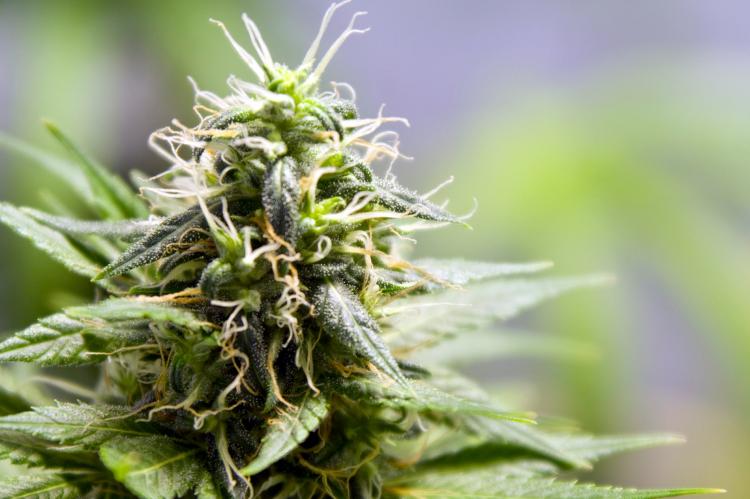The Importance Of Advocacy And Social Responsibility In The Cannabis Industry
Cannabis businesses are in a unique position to showcase what a socially responsible industry could look like.
The traditional models for business entities fall under either for-profit companies focused on profit, or nonprofit organizations focused on social impact. But many emerging leaders are leaning toward a third option: social entrepreneurship. As a tool for effective social change, self-sustaining revenue-generating businesses built to create change can be more impactful than nonprofits, which rely heavily on hard-to-come-by donations.
Just as true as the ability for for-profit companies to make a positive social impact is the fact that consumers want to see it in the brands they support. This isn’t true just in the cannabis industry, where consumers have been criminalized and often violently arrested for decades, but across all industries.
A 2019 survey of 420 consumers in the U.S. found that "fewer people (44%) say price is among the most important attributes of a company compared to environmentally friendly business practices (71%), social responsibility (68%), and giving back to the local community (68%)."
CEOs across the board are also paying attention to this. According to Deloitte’s 2019 Global Human Capital Trends report, "When CEOs were asked to rate their most important measure of success in 2019, the No. 1 issue they cited was ‘impact on society, including income inequality, diversity, and the environment.’"
The cannabis industry was created by a social grassroots movement — and at a time when consumers are increasingly demanding that companies focus on their social impact. Because of this, the cannabis industry is uniquely situated, if properly built, to act as a positive example of what capitalism could look like for other industries looking for models.
Some of the biggest social justice issues we face as an industry include racial equity and reparations, overturning cannabis incarcerations and convictions, environmental impacts of cultivation, and continuing the fight to end the broader war on drugs, to name but a few. It’s important for those helping shape the industry to think about the broader implications and the impact that doing the right thing can now have on society as a whole. Implementation of environmentally friendly practices or initiatives to support continued efforts to end the broader war on drugs are small, simple ways canna-businesses can positively impact the world they operate in.
It’s also important that the way we address these issues has real, positive impacts and isn’t created just for headlines. As an example, many state cannabis programs, such as Massachusetts' Social Equity Program, have attempted to implement social equity programs that award historically oppressed communities and individuals with business licenses or other services.
However, beginning a cannabis business is a road fraught with further expenses and risks. It’s one thing to award business licenses, and another to have the capital for loans and fees or the social capital of industry connections to form advisory boards. A recent article in The Guardian is a solid profile of such issues. In Los Angeles, bureaucratic mistakes, scandals and endless delays have caused the well-meaning social reparations program to instead bankrupt the people it sought to help. The program required applicants to already have storefront properties secured and leased, meaning most have been paying rent without profit for more than a year while awaiting approval, and investors are pulling away.
The good news is that your business doesn’t need to tackle these issues alone. Nonprofit organizations such as Students for Sensible Drug Policy (SSDP), the National Organization for the Reform of Marijuana Laws (NORML) (disclosure: I'm on the board at both of these organizations) and the Marijuana Policy Project (MPP) are essential to the cannabis industry because they provide information and services the federal government won’t and, in some cases, legally can’t, such as keeping a check on consumer safety. If you’re unsure where to begin integrating advocacy or social entrepreneurship into your company, reaching out to a local branch of one of these organizations is a great place to start.
Another essential measure is teaming up with other like-minded companies in an effort to raise one another up. A recent article from Benzinga entitled “Why Partnerships Are The Lifeblood Of The Cannabis Industry” provides firsthand accounts from marijuana entrepreneurs detailing how essential cooperation is and has been to their success. Not only can you build better brand partnerships throughout the industry, but you can also play a part in bringing new technology and systems or innovative and impactful ideas to the forefront, which the entire market can benefit from.
Service firms, such as marketing and public relations companies, should consider implementing pro bono programs for up-and-coming businesses with like-minded goals and ideals. The firm doesn’t necessarily need to offer its full spectrum of services — simply consulting or offering access to certain tools or knowledge can make a huge difference to newcomers in the industry.
Impactful actions for all businesses include offering donation matches to clients, using your platform to spread messages of inclusivity, and advocating for awareness around those issues that mean the most to your company. Switching to more eco-conscious packaging or upgrading delivery vehicles to be more environmentally friendly is another method of social reflection and responsibility.
Look for the opportunities that benefit your company and a partner company, and make the cannabis industry a better model on the whole.
The ability to do good is boundless in the cannabis industry and is incredibly important. You don’t need to create a socially driven business model to be a socially responsible company. This is the opportunity to showcase what an optimal, socially responsible industry could look like, so make it count here and now.
- Log in to post comments

